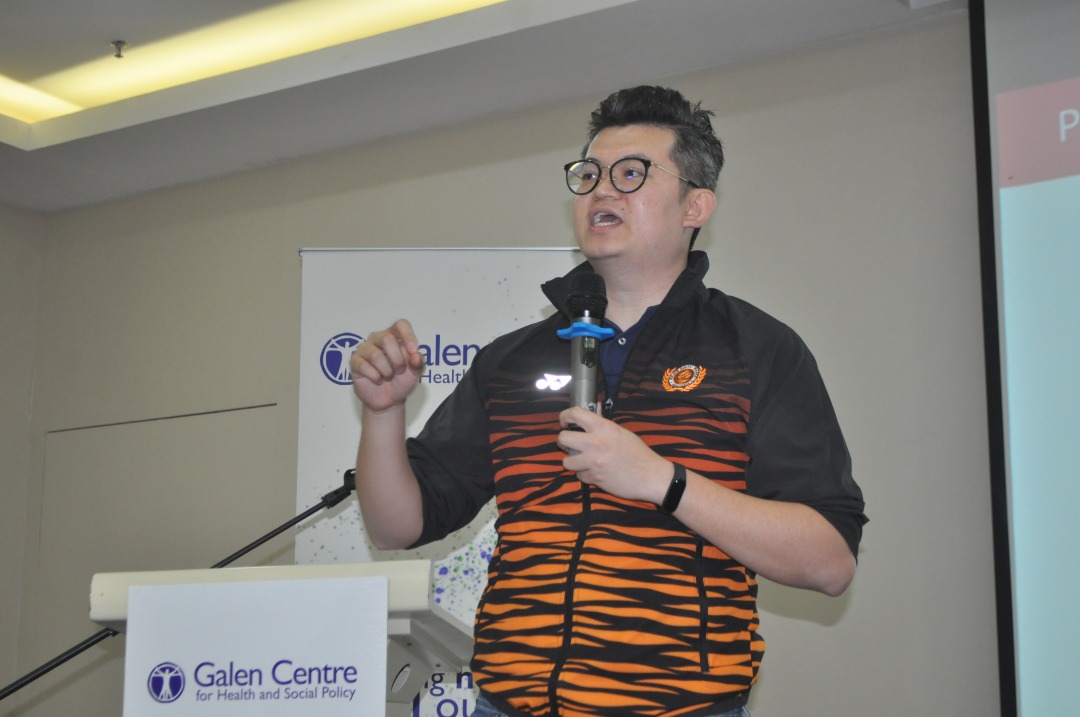KUCHING, Dec 17 — In a landmark move, Pakatan Harapan (PH) has agreed to decentralise some federal health matters to Sarawak, according to DAP lawmaker Dr Kelvin Yii.
The Bandar Kuching MP said the Cabinet special committee to review the implementation of the Malaysia Agreement 1963 (MA63) has already agreed to devolve certain federal powers to the state, but said he could not reveal more. Health is under federal jurisdiction.
“I cannot (reveal) details of the discussions, but maybe I’ll drop some hints,” he told an East Malaysia healthcare-centric conference that was organised by the Galen Centre for Health and Social Policy here on Saturday.
He said a number of issues relating to health infrastructure and human resources are being considered in discussions involving the Sarawak and Sabah state governments and Putrajaya, including on the lack of specialists.
Dr Yii said this is one of the biggest issues Sarawak faces, adding that the low number of specialists in the state has also affected the quality of house officers as the latter lack mentorship by the former.
“We cannot just take in housemen when there are not enough specialists to train (housemen). We do not have enough teaching hospitals to train them. So, we have to address the issue holistically: how do we incentivise and train specialists in Sarawak?
“Without (going) further, all of these (other health care concerns included) are being considered; in terms of giving more autonomy to the state, as well as having more incentives, (and) in terms of decision-making.”
He added that this includes distribution of doctors in the state, which he said is an issue in rural parts of Sarawak such as Long Semadoh in the Ba’kelalan highlands, but not in most cities where there is good access to physicians.
“So, having a pool of doctors is one good thing, but the distribution of the doctors is the other issue that we talk about (during the MA63 discussions).
“We are even talking about involving the state, in terms of (giving it) authority, to see how it can happen,” he added.
Despite branding the decentralisation decision as a “game-changer”, Dr Yii, however, asked if the state health department is prepared to handle their new powers, saying Putrajaya cannot hand it over if the state is not prepared for the take over.
He warned of existing policies and programmes falling apart if the state health department was not up to mark.
Dr Yii, a medical doctor by profession, added that he is passionate about pushing for decentralisation of health care from hospitals to the community.
As such, he has donated funds from his federal allocation as an MP to the Sarawak General Hospital’s Board of Visitors to ensure that they are able to carry out community events in low-income parts of Kuching, seek out more people to register as patients, and offer health care services.
He also expressed hope that the decentralisation decision would better federal-state relations and that politics would not get in the way of it.
“I, as a politician, am sick of a lot of politics that is going on. (But) especially in health care, I think we should not (politicise it) because I think we want to improve it as a whole.”
He added that health care access is not the sole responsibility of the Ministry of Health as it involves the Ministries of Rural and Regional Development, Works, Water, Land and Natural Resources, among others, citing an example of villagers getting infected by bathing in rivers.
Meanwhile, in a statement, the Galen Centre said the federal government should consider returning decision-making on health to the East Malaysia state governments, noting that out-of-the box solutions are needed as people in the two states are still being left behind.
The health and social issues think tank’s chief executive, Azrul Mohd Khalib, said doing so would be in tandem with the goal of making health care reforms, especially for health infrastructure in Sabah and Sarawak, priority investments in the upcoming 12th Malaysia Plan.
“More than a third of the population in Sarawak and Sabah continue to live beyond 5km of any kind of health facility and have to travel for hours to seek treatment,” he pointed out.
“There is a need for more health infrastructure facilities in rural areas and strengthening of existing services, but most importantly in ensuring that they are staffed with sufficient skilled health care workers.”
He also made reference to PH’s 2018 election manifesto 44th promise that states that the Sabah and Sarawak state governments will be given decision-making rights in education and health matters, should the coalition be voted into power.
“East Malaysia has its own unique and challenging issues surrounding urban and rural health care access, coverage and treatment due to its size, scattered population, and constant woes over access from maternal health to cancer treatment.
“One way forward which was identified by the manifesto, is that Putrajaya can help meet the people’s needs in East Malaysia by handing the responsibility in health on financing, infrastructure development and placement of medical professionals back to the state governments.”
He added that it was clear from the various discussions and conversations on Saturday that Sarawakians and Sabahans want to take the matter into their own hands when it comes to health, as opposed to the decades-long way of federal control.








